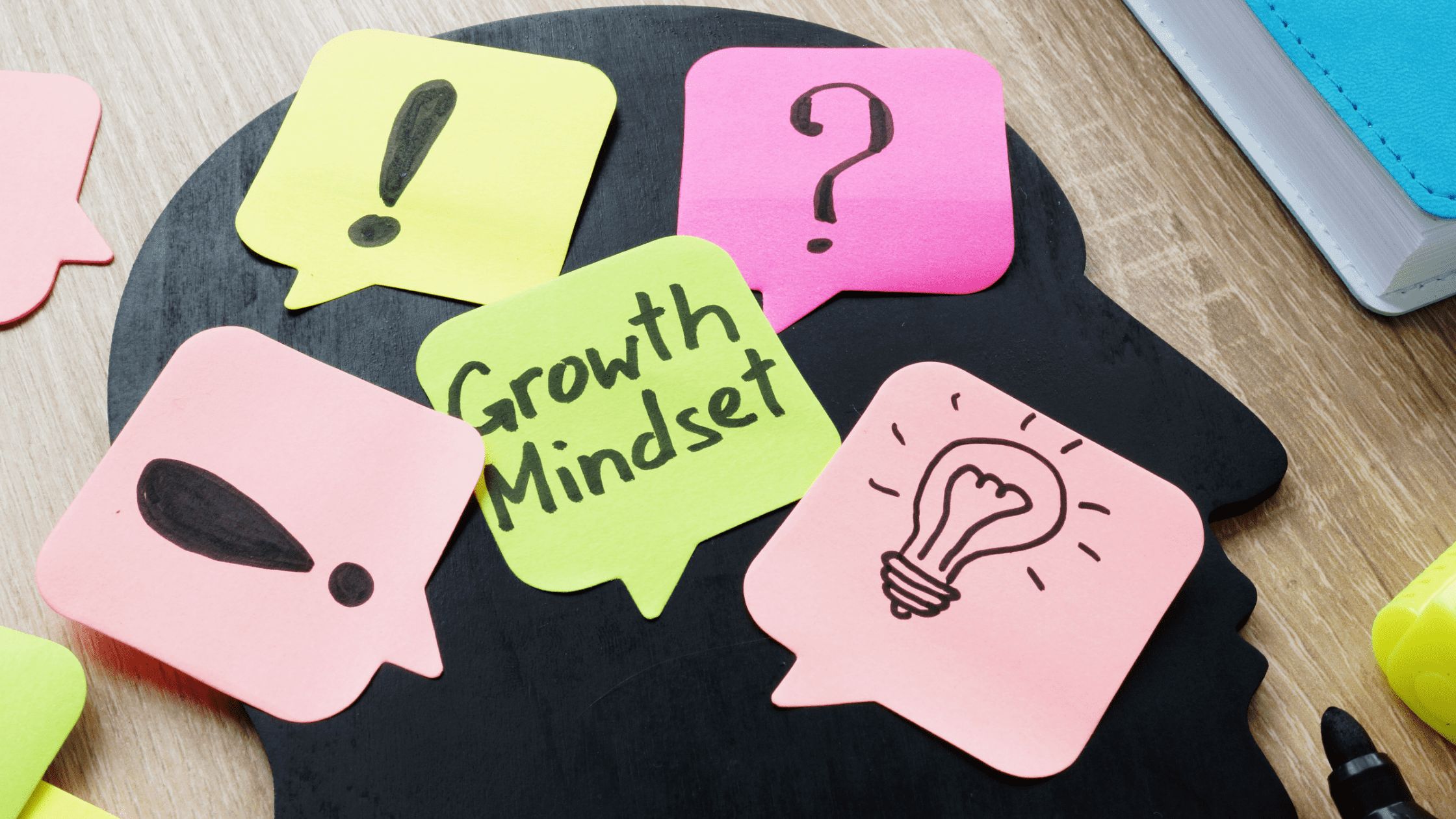Growth mindset refers to the belief that individuals can develop their abilities and intelligence through hard work, dedication, and a willingness to learn from failure. This concept was popularized by Stanford psychologist Carol Dweck, who described it as the opposite of a fixed mindset, where individuals believe that their abilities and intelligence are predetermined and cannot be changed. In a growth mindset, people embrace challenges, persevere through obstacles, and view failures as opportunities to learn and improve. Adopting a growth mindset can lead to greater success in both personal and professional endeavors, as individuals are more likely to take on new challenges and see them through to completion. Fixed Mindset vs Growth Mindset Fixed mindset and growth mindset are two different beliefs about personal abilities and intelligence. Individuals with a fixed mindset tend to believe that their abilities and intelligence are predetermined and cannot be changed. They view their successes and failures as a reflection of their inherent talents and qualities, rather than their effort or strategies. As a result, they may avoid taking on new challenges or risk failure to avoid appearing incompetent. On the other hand, individuals with a growth mindset believe that they can develop their abilities and intelligence through hard work, dedication, and a willingness to learn from failure. They embrace challenges, persevere through obstacles, and view failures as opportunities to learn and improve. They focus on effort and strategies, rather than their innate talents, as the key to success. The difference between these two mindsets can have a significant impact on personal and professional growth. Fixed mindset individuals may limit their potential by avoiding challenges or taking a narrow view of their abilities, while those with a growth mindset tend to be more open to new experiences and opportunities for growth. By adopting a growth mindset, individuals can develop a more positive attitude toward learning and personal development, leading to greater success and fulfillment in life. The Importance of Growth Mindset Having a growth mindset is essential for personal and professional growth. When we believe that we can develop our abilities and intelligence through hard work and dedication, we become more open to new experiences and opportunities for growth. This leads to a more positive attitude toward learning and personal development, which in turn can lead to greater success and fulfillment in life. One of the most significant benefits of having a growth mindset is resilience in the face of failure. When we view failure as an opportunity to learn and improve, we are more likely to persevere through obstacles and come out stronger on the other side. This can lead to greater confidence and a willingness to take on new challenges. Another benefit of having a growth mindset is increased creativity and innovation. When we believe that our abilities are not fixed, we become more open to new ideas and approaches to problem-solving. This can lead to breakthroughs and advancements that might not have been possible with a fixed mindset. Additionally, having a growth mindset can improve relationships and communication skills. When we are open to feedback and willing to learn from others, we can develop stronger bonds with colleagues, friends, and family members. This can lead to greater collaboration, empathy, and understanding. Cultivating Growth Mindset Here are some of the strategies organizations can implement in order to cultivate growth mindset: Promote a culture of learning and development: Encourage employees to take on new challenges and seek out opportunities for growth, such as training programs or skill-building workshops. Encourage risk-taking and experimentation: Create a safe space for employees to try out new ideas and approaches without fear of failure or judgment. Provide constructive feedback: Encourage managers and colleagues to provide feedback that is specific, actionable, and focused on improvement rather than criticism. Celebrate effort and progress: Recognize and reward employees for their hard work and progress, rather than just their final outcomes. Foster collaboration and teamwork: Encourage employees to work together to solve problems and share knowledge and expertise. Model growth mindset behaviors: Leaders and managers should model growth mindset behaviors, such as openness to feedback, a willingness to learn, and resilience in the face of failure. Provide opportunities for reflection and self-assessment: Encourage employees to reflect on their progress and identify areas for improvement, and provide tools such as self-assessment surveys to support this. Encourage a growth mindset language: Use language that reinforces a growth mindset, such as “not yet” instead of “failed” or “fixed” mindset statements. By implementing these strategies, organizations can cultivate a growth mindset culture that promotes learning, development, and innovation, leading to better outcomes for both employees and the organization as a whole. PEDALS has helped many organizations in cultivating growth mindset among their leaders. Contact us today to learn more about how we can do the same for you.
The Culture of Learning: How to Stay Ahead in a Rapidly Changing Business Environment
In today’s rapidly evolving business landscape, the concept of culture of learning has become increasingly critical for organizations looking to remain competitive and adapt to changing circumstances. A culture of learning refers to an environment in which continuous learning and development are actively encouraged and integrated into the daily operations of an organization. Developing such a culture involves fostering a mindset that values learning and innovation, encouraging collaboration and experimentation, and providing ample opportunities for employees to acquire new skills and knowledge. One of the most significant benefits of creating a culture of learning is that it helps organizations stay relevant and competitive in an ever-changing business environment. As new technologies and techniques emerge, organizations that have developed a culture of learning can quickly adapt and adopt new approaches, ensuring that they remain at the forefront of their respective industries. This can be especially important in industries where technological advancements are occurring rapidly, such as the tech industry. Another key benefit of developing a culture of learning is that it can enhance employee engagement and retention. Employees who feel that their organization values their growth and development are more likely to feel invested in their work and to remain with the company over the long term. This can help organizations reduce turnover and improve overall morale and job satisfaction. So, how can organizations develop a culture of learning? There are several key strategies that can be effective in fostering a learning mindset among employees and building a culture that prioritizes continuous learning and development. First, organizations should provide ample opportunities for employees to acquire new skills and knowledge. This might include offering training programs, encouraging participation in conferences and workshops, or providing access to online learning resources such as webinars, e-learning modules, and podcasts. By offering a range of learning options, organizations can accommodate different learning styles and preferences and ensure that employees have the resources they need to develop their skills. Second, organizations should encourage a mindset of experimentation and innovation. This might involve setting aside time for employees to work on projects that are outside of their usual job responsibilities or encouraging employees to explore new approaches to problem-solving. By creating a culture that values innovation and experimentation, organizations can empower employees to take risks and learn from both their successes and failures. Third, organizations should prioritize collaboration and knowledge-sharing. This might involve implementing knowledge management systems, creating communities of practice, or setting up cross-functional teams to work on projects together. By fostering a culture of collaboration and knowledge-sharing, organizations can ensure that employees are learning from one another and that knowledge is being transferred throughout the organization. Finally, it’s essential to recognize and reward employees for their learning and development efforts. This might involve offering promotions or pay raises based on skills acquisition, creating awards or recognition programs for employees who excel in learning and development, or simply acknowledging and celebrating employee achievements. By recognizing and rewarding employees for their learning and development efforts, organizations can further reinforce the importance of continuous learning and create a positive feedback loop that encourages further growth and development. Case Example: AirBnB’s Culture of Learning One example of an organization that has successfully developed a culture of learning is Airbnb. From its early days as a startup to its current status as a global hospitality giant, Airbnb has consistently prioritized employee learning and development as a key driver of its success. One way in which Airbnb has fostered a culture of learning is by providing employees with ample opportunities for training and development. For example, the company offers a variety of courses through its “Airbnb Academy,” an internal learning and development program that provides employees with access to a range of training modules and workshops on topics such as leadership development, technical skills, and cross-functional collaboration. The company also encourages employees to attend conferences and events, and to take advantage of online learning resources. In addition to formal training programs, Airbnb also places a strong emphasis on experimentation and innovation. The company encourages employees to take risks and try new approaches to problem-solving, and provides them with the resources and support they need to do so. For example, the company’s “Hack-a-thon” events encourage employees to work on cross-functional projects and experiment with new technologies and approaches. Airbnb also places a strong emphasis on collaboration and knowledge-sharing. The company’s internal communication platform, known as “Chime,” provides employees with a forum for sharing information and ideas, and encourages collaboration and communication across teams and departments. The company also holds regular “brown bag” sessions, in which employees can share their expertise and learn from one another. Finally, Airbnb recognizes and rewards employees for their learning and development efforts. The company offers a range of career development opportunities, including mentorship programs and leadership training programs, and provides employees with regular feedback on their performance. The company also celebrates employee achievements and provides opportunities for recognition and advancement based on skills and performance. Through its focus on employee learning and development, Airbnb has been able to build a strong culture of innovation, collaboration, and continuous learning. This culture has been a key factor in the company’s success, helping it to stay ahead of competitors and adapt to changing market conditions. By prioritizing employee learning and development, Airbnb has created a culture in which employees are empowered to take risks, experiment with new approaches, and contribute to the company’s ongoing success. Developing a culture of learning is critical for organizations looking to remain competitive and adapt to changing circumstances. By fostering a mindset that values learning and innovation, encouraging collaboration and experimentation, and providing ample opportunities for employees to acquire new skills and knowledge, organizations can build a culture that prioritizes continuous learning and development. Doing so can lead to a range of benefits, including increased employee engagement and retention, improved organizational agility, and better overall performance. PEDALS offers companies a way to stay ahead of the curve and adapt to the evolving workforce. Contact us today to


